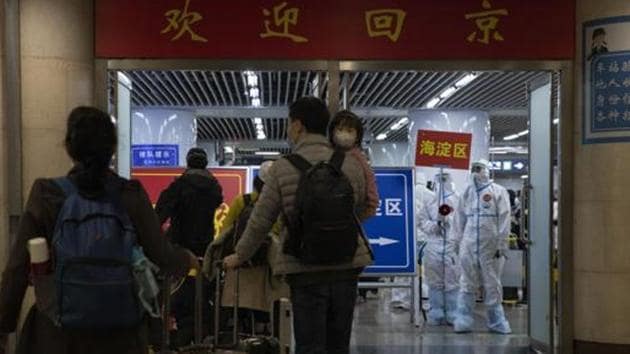Social distancing, curbs to mark flight and train travel
One such SOP, released by the Airports Authority of India recently, suggests that flights are likely to resume at close to a third of their usual capacity, and airport terminals will open with only a few outlets for food and beverages.
Social distancing requirements on long-distance travel modes such as trains and flights are likely to require operators to adopt drastic new measures, most of which will also impact the economics of their business.

The civil aviation and the railways ministries are considering several restrictions such as crowd management, screening of possible infected persons and new rules that will make masks mandatory for all passengers as part of standard operating protocols (SOP) likely to be put in place when trains and flights can be resumed.
One such SOP, released by the Airports Authority of India recently, suggests that flights are likely to resume at close to a third of their usual capacity, and airport terminals will open with only a few outlets for food and beverages.
According to the SOP, seating arrangement shall be done in such a manner so as to maintain social distancing (1-1.5 m) among passengers using chairs at terminals. “Sufficient staff shall be deployed near washrooms, X-Ray machines, conveyor belts, etc, to guide passengers to maintain sufficient distance,” it said. Alternate check-in counters may also be introduced to avoid congestion.
Strict social distancing norms are likely to also be introduced inside planes, though officials and experts are yet to determine how that will be possible.
An official, who asked not to be named, said other ideas include spreading out flight timings to avoid crowding at terminals and asking people to arrive sooner than usual so that security and immigration processes can be completed while maintaining distancing.
Civil aviation analysis agency CAPA said the current financial year will be hard on airlines. “Potential social distancing and inspection protocols when services resume will seriously impact the ability of airlines to even recover their variable costs. Some carriers may lose less money by remaining grounded,” it said. The Central Industrial Security Force (CISF) has proposed reporting time for passengers be increased up to 120 minutes.
A ‘business continuity plan’ drafted by the Central Industrial Security Force (CISF) has also proposed reporting time for passengers to the airport should be increased up to 120 minutes.
Restrictions will also be imposed for travelling in trains. The ministry of railways is preparing detailed guidelines for sale of tickets; social distancing and other safety measures to be observed at train stations, train platforms and within the trains for facilitating movement of stranded migrants for now.
There will be strict norms for passengers including arriving hours before the journey, downloading the Aarogya Setu app to display a health status and mandatory thermal screening, according to officials.
Passengers will have to wear masks and apply hand sanitizers before and after boarding. Inside the trains, strict social distancing will be ensured, and the ministry is also mulling the idea of leaving the middle berth vacant and deploying only non-AC coaches, added the officials quoted above. The Centre is also planning to make ticketing for metro trains contactless and not allow passengers to use tokens.






